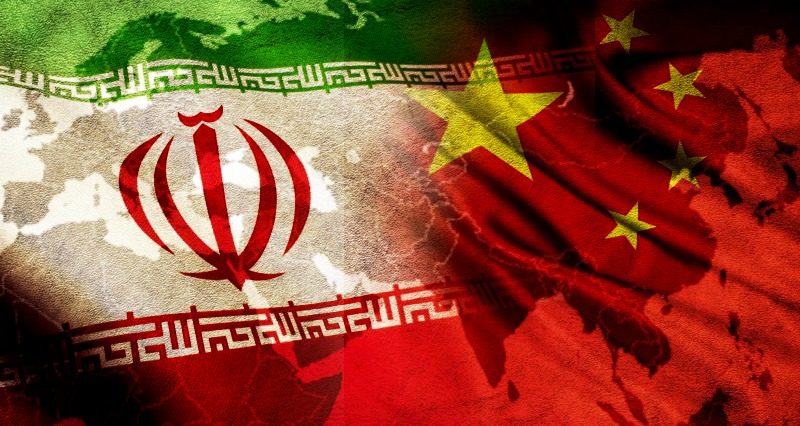
Partenariato strategico Cina-Iran: non una novità
L’ampio partenariato tra i due Paesi spianerebbe la strada a miliardi di investimenti cinesi, complicando tutti gli sforzi del presidente Trump di isolare Teheran e le sue ambizioni nucleari e militari. La cooperazione militare tra Cina e Iran non è però una novità.
Secondo il Wall Street Journal, l’Iran e la Cina avrebbero raggiunto un importante accordo militare e commerciale. L’intesa lascerebbe spazio a investimenti cinesi per circa 400 miliardi di dollari nei settori chiave dell’energia e delle infrastrutture della Repubblica islamica nei prossimi 25 anni. L’intelligence statunitense è preoccupata che l’accordo possa prevedere l’installazione di basi militari cinesi nel paese mediorientale: se così fosse la geopolitica dell’intera regione subirà un cambiamento radicale.
La bozza dell’accordo, come riporta la testata giornalistica americana, parla di una forte espansione cinese in Iran (dalle banche, alle Tlc, dalle ferrovie ai porti); in cambio Teheran dovrebbe fornire una quantità regolare di petrolio a Pechino nel prossimo quarto di secolo.
L’intesa prevedrebbe anche un approfondimento della cooperazione militare tra i due Paesi, con addestramento ed esercitazioni congiunte, ricerca e sviluppo nel settore e condivisione dell’intelligence. Questa “collaborazione militare” avrebbe l’obiettivo di contrastare il terrorismo internazionale, traffico di droga e di essere umani e crimini transazionali.
L’accordo sarebbe stato promosso dal presidente cinese, Xi Jinping, durante la sua visita nella capitale iraniana nel 2016, per poi essere approvato dal presidente iraniano, Hassan Rouhani nelle ultime settimane. Tuttavia, non è stato ancora presentato al Parlamento iraniano, sebbene i funzionari di Teheran abbiano più volte dichiarato che con la Cina esiste un progetto in sospeso. Questa alleanza arriva in un periodo alquanto difficile per l’Iran, sia a causa delle sanzioni statunitensi che della pandemia di coronavirus.
Per entrambi i Paesi, si tratta di una mossa strategica di grande importanza, non solo per espandere i propri interessi nella regione, ma anche per contrastare la politica di Washington. Il progetto con l’Iran mostra come la Cina, a differenza di altri Paesi, ritiene di essere in grado di sfidare gli Stati Uniti. Dall’altra parte, la Repubblica islamica, abituata ad intese di solo carattere commerciale con i Paesi europei, per la prima volta, stringe un’alleanza con una grande potenza mondiale.
Tra i vari investimenti nel settore delle infrastrutture, molta importanza acquista l’eventuale costruzione di un porto a Jask, appena fuori dal Golfo di Hormuz. Un porto cinese a Jask consentirebbe a Pechino di avere una posizione strategica in una tratta nella quale transita gran parte del petrolio mondiale. Tale ipotesi preoccupa molto la Casa Bianca che considera il passaggio di fondamentale importanza strategica.
L’accordo in sé rappresenta un duro colpo per l’amministrazione guidata da Donald Trump e la sua politica aggressiva nei confronti della Repubblica islamica da quando ha abbandonato l’accordo nucleare raggiunto nel 2015 dal suo predecessore Barack Obama e dai leader di altre sei nazioni dopo oltre due anni di estenuanti negoziati. Le rinnovate sanzioni statunitensi sono riuscite a soffocare l’economia iraniana e spingere Teheran tra le braccia di Pechino.
La collaborazione militare tra Iran e Cina non è cosa nuova. All’inizio degli anni Novanta intensi rapporti erano in atto tra i due Paesi. Durante la guerra tra Iran e Iraq, la Cina fornì all’Iran il 22% del totale delle importazioni iraniani di armi, e nel 1989 divenne il suo maggiore fornitore. Inoltre la Cina partecipò attivamente agli sforzi iraniani, esplicitamente dichiarati, di acquisire armi nucleari in passato. Dopo un primo “accordo iniziale di cooperazione sino-iraniano”, nel gennaio del 1990 i due paesi raggiunsero un’intesa decennale in materia di cooperazione scientifica e trasferimento di tecnologia militare. Nel settembre del 1992 il presidente Rafsanjani si recò in Pakistan e quindi in Cina, dove firmò un altro accordo di cooperazione nucleare. Nel febbraio del 1993 la Cina acconsentì a costruire in Iran due reattori nucleari 300-MW. In ossequio a tali accordi, la Cina trasferì informazioni e tecnologia nucleare all’Iran, addestrando inoltre ingegneri e scienziati. Nel 1995, dietro forte pressione statunitense la Cina fu costretta a “sospendere” la vendita dei due reattori. Pechino è stato anche fornitore di missili e tecnologia missilistica all’Iran, come i Silkworm (via Corea del Nord).





